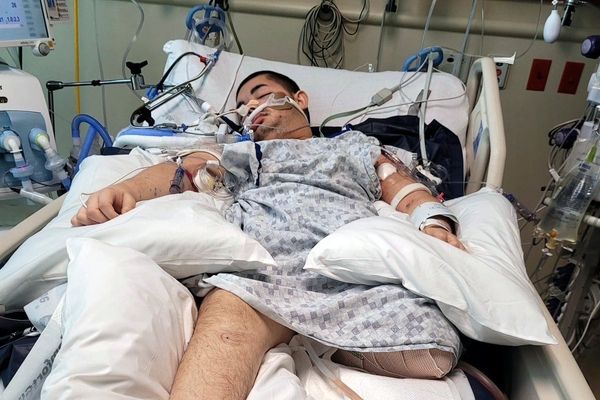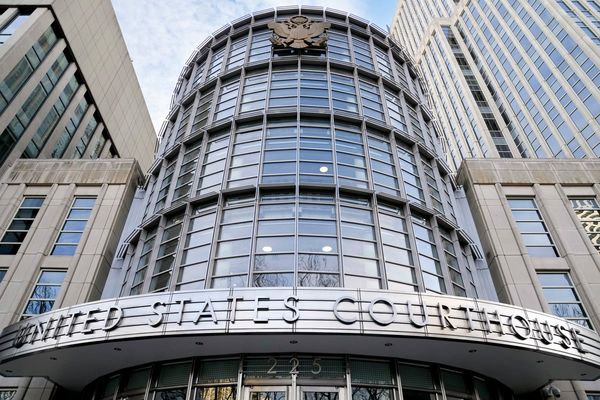
Port Louis, Mauritius – Until early 2022, Gaetan (real name withheld) was earning a decent living as a construction worker, helping on sites around Mauritius, when he made a snap decision that would turn his life upside down.
While smoking a cigarette with colleagues during his lunch break one day, the 35-year-old was offered the opportunity to buy some heroin. Within weeks, he was taking it daily to stave off the aches and pains of withdrawal.
“That one decision cost me dearly,” he tells Al Jazeera. Soon he was dipping into his hard-earned savings to find the 2,000 Mauritian rupees ($45) he needed for his four daily doses. His fellow addicts at work would strip copper wires or lift corrugated iron and white goods off the streets, selling the metal to fund their habit – a common practice in the city.
In the grip of addiction for a few months, Gaetan realised he had to get out fast. But after two weeks of quitting drug use, he relapsed. Eventually, he found his way to the Idrice Goomany Treatment Centre, located in the heart of Port Louis, where he completed an intensive six-month detox programme.
He still visits weekly for counseling and is a rare success story on this tiny island of 1.3 million people being ravaged by a drug epidemic of unprecedented proportions. Heroin addiction, which peaked in the ‘90s, has made a roaring comeback in the country, the drug rerouted to its shores through Madagascar on its journey from Afghanistan to East and Southern Africa.
In parallel, synthetics have taken hold – drugs like “Black Mamba”, “Rambo” and “Murder” made with chemicals from China, which are mixed with thinner or pesticides and sprayed onto tea, tobacco or herbs, providing highly toxic hits to youngsters. “The advantage of synthetics is that they are cheap,” says Imran Dhanoo, director of the centre. Schoolkids club together to buy a hit for 100 Mauritian rupees ($2), he says.
“Today, drugs are the country’s number one problem,” says Mario Ah-Sian, director of the Centre d’Accueil de Terre Rouge, another treatment centre located a few kilometres from Port Louis. The 63-year-old quit heroin 23 years ago and has since devoted his life to helping others free themselves from the affliction. Drugs have wreaked havoc all over the island, sparking a wave of robberies and assaults, he says.
According to a 2021 official survey, around 55,000 people between the ages of 18 and 59 (7.4 percent of that tranche of the population) consume non-injectable drugs, including cannabis, synthetics and heroin ingested by sniffing, snorting or smoking.
Calculations were based on small samples rather than boots-on-the-ground fieldwork, says Ah-Sian. Like many others Al Jazeera spoke to, he believes the real figures are much higher.

Epicentre
In Karo Kalyptus, the impact of the fast-growing drugs trade is easy to see. This is the epicentre of the island’s narco scene, an area targeted last July in a meticulously-planned police raid that hauled 77 million Mauritian rupees (more than $1.7m) worth of cannabis, synthetics and heroin. Looking around the tiny enclave, a ramshackle cluster of raw concrete and rusting corrugated iron shacks deep within the impoverished suburb of Roche Bois, it’s hard to believe such large sums transit through here.
Al Jazeera met three local women in Karo Kalyptus. They spoke using pseudonyms while stressing that they were sick of seeing their young being destroyed by drugs. Life here is tough, says Marie, who washes clothes for a living and notes that many kids don’t go to school, some starting on drugs as early as age 10. “Ena zanfan inn fini andan,” she says, in Creole – “there are kids whose insides are destroyed”. Earlier this year, she stumbled upon a dead man on the street, whom she believes overdosed on heroin.
Claudine, another one of the women, says crystal meth and a new product called “ladrog zombi” (“zombie drug”), which renders users comatose, are becoming more prevalent on the market. The name of the latter drug and the description of its effects appear to tally with recent reports of animal tranquilliser xylazine arriving in neighbouring Reunion.
Locals here are employed as lookouts. They earn 1,500-2,000 rupees ($34-45) per day, a relatively lucrative pay packet in a country where many struggle on a minimum wage of 15,000 rupees ($340) a month in the midst of a cost-of-living crisis. Often, lookouts receive advance notice of police visits, sometimes as long as two hours. “Someone on the inside is giving them the information,” says Claudine.
‘No political will’
In 2018, a state-appointed commission of inquiry found clear evidence of mafia influence over a variety of actors, including police, prison guards, lawyers, customs officials and politicians. It advised that the country’s Anti Drug and Smuggling Unit (ADSU), judged too rotten to reform, be dismantled. Five years later, ADSU lives on, its influence bolstered by the creation of a complementary force called the Special Striking Team (SST) made up of former officers from ADSU ranks.
As next year’s election slides into view, the government of Prime Minister Pravind Jugnauth has stepped up its war on drugs with sombre billboards announcing “Unis Contre la Drogue – United against Drugs”. But, critics claim the SST is a political tool of Jugnauth’s Militant Socialist Movement (MSM), calling his sincerity into question. Officers have arrested high-profile targets, including lawyer Akil Bissessur and activist Bruneau Laurette, known for advocacy against police brutality and narco influence, on provisional charges of drug trafficking or fraud.
The government also stands accused of protecting the island’s biggest trafficker. Jean-Hubert Célerine, aka Franklin, was sentenced to seven years in prison for inter-island trafficking by authorities in neighbouring Reunion in 2021.
Yet he remains in Mauritius, where he is currently being investigated for money laundering. So low is public trust in the government that many suspect the probe was set up to delay the kingpin’s extradition. “If he talks, a lot of senior heads will roll,” says Ally Lazer, a veteran social worker, who has waged a decades-long campaign against drugs on the island.
“There’s no political will to fight the drugs mafia,” says Nando Bodha, former secretary-general of the ruling MSM, who left the party after witnessing its lurch towards autocracy close up. Now with Linion Moris, a multi-party alliance, he wants to overhaul a system he believes is corruption-ridden. “More and more, we’re turning into a narco economy,” he says. “Drug money is involved in horse racing, betting, casinos and retail businesses. Kingpins have infiltrated the judicial and legal systems”.
Al Jazeera contacted the Government Information Service for an interview, but got no response.
Recovery and redemption
As drugs become more enmeshed in the fabric of daily life, the country is reviewing its treatment of addicts, moving away from the repressive policies of old. Right now, the government is setting up a panel to shepherd users through the various stages of recovery – from rehabilitation to reintegration. It’s a move welcomed by Dhanoo who wants to see more addicts in treatment centres, rather than in prison.
But, until narco influence is tackled, the problem won’t be going away any time soon. Gaetan recalls how easy it was to dodge ADSU officers in Baie du Tombeau when he was out buying doses of “brown”, as heroin is known locally. “There were about four of five dealers in the area. Everyone knew where the police was,” he says.
Slowly, he is recovering. In his village of Flacq, where “most people are on something, young, old, men, women”, he has cut off contact with former associates and only leaves his home to go to work or buy food, always ensuring he only carries a strict minimum of cash.
“I feel like before I started taking it, but I know I’ve changed,” Gaetan says. “It’s a curse. It finishes you off.”







